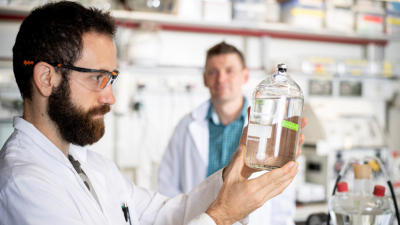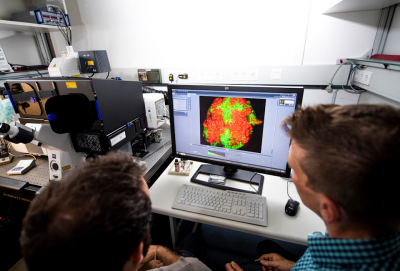- Home
- Discover
- Archive News
- News 2020
- Otto Hahn Medal
Otto Hahn Medal for Rafael Laso Pérez
In his thesis, Rafael Laso Pérez worked on a group of microbes called archaea. Archaea are different than bacteria and for a long time they have not been so deeply investigated. Laso Pérez has contributed to unravel the role of archaea in the degradation of hydrocarbons in deep-sea sediments. He describes archaea with a novel pathway to degrade hydrocarbons in the absence of oxygen. The archaea using this mechanism are found in diverse hydrocarbon-rich environments like oil and gas seeps and deep reservoirs. This indicates a so far unexplored role of these organisms in hydrocarbon degradation and opens up for a lot of exciting future research.
With the Otto Hahn Medal, the Max Planck Society honours its best doctoral students. Especially gifted young scientists should be motivated to pursue a university or research career. “I am deeply honoured to receive the Otto Hahn Medal. This encourages me to continue learning, researching and being curious about the entire world,” Laso Pérez said. The fact that so little is known about archaea compared to bacteria was one of his main motivations during his PhD. “I loved to shed light on funky metabolisms and microorganisms.” Laso Pérez now works as a postdoc at MARUM.




